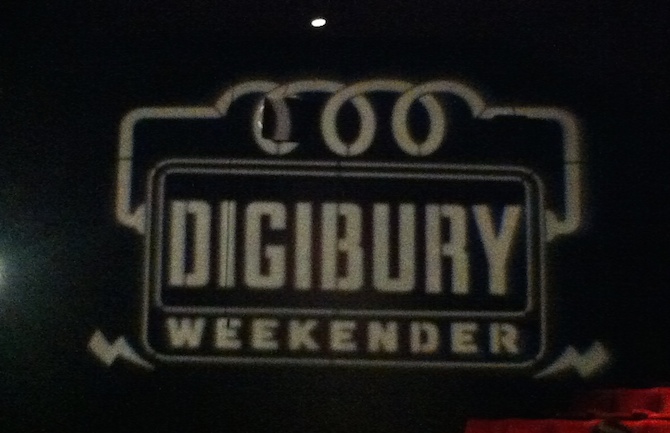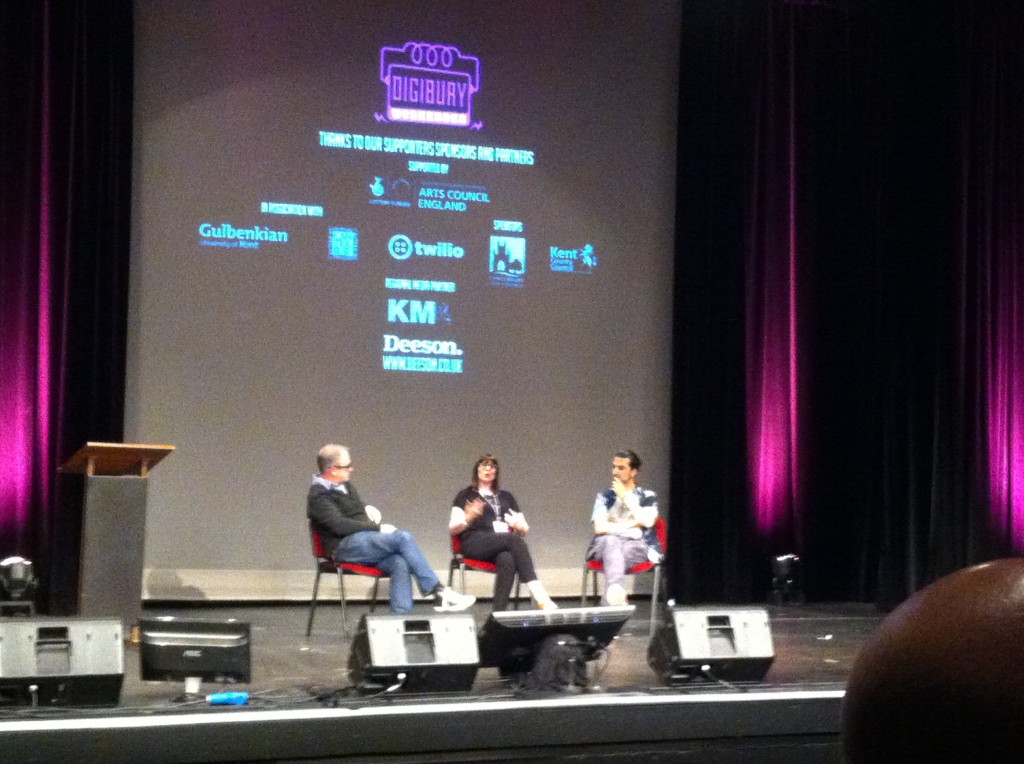
The Digibury festival made its debut for the first time this weekend, bringing speakers and audiences together to discuss the impact modern technology is having on culture and society.
The day-long festival featured 20 talks from various speakers from both the local community and the UK. Each speaker talked about their specialised field and how technology has changed their profession, showing perspectives from either a positive or negative view.
The festival was hosted by Robin Ince, an award-winning comedian and co-host of BBC R4’s science series, The Infinite Monkey Cage. Ince was absolutely brilliant and a really great choice of host. He kept the audience entertained with his hilarious anecdotes featuring a Nobel Prize winner or two. At the start of the festival he introduced himself as an ‘idiot’, but that’s far from being true, as he was superb in holding his own during the Q&A sessions, where he summarised points and helped start debates.
I had never heard of Robin Ince before but after this weekend he now has one more listener on R4 and another follower on twitter.
The day kicked off with keynote speaker Aral Balkan, an innovator and social entrepreneur, talking about the value of our data to social media networks. He commented about our privacy indicating that what we think is private online is actually not, instead he suggests we are sharing our data with some ‘creepy uncle’ otherwise known as the mainstream social media sites. Balkan certainly knows not only how to hold an audience but to also inspire them. At the end of his talk he encouraged everyone to ask the question ‘what is your business model?’ This is because he suggests we need to be aware that our online profiles are being sold and the only way to find this out is to ask about the companies’s business model. His talk was very thought provoking and definitely set the mood for the day.
Nick Tatt, an attendee said: ‘The keynote speaker was very funny but what I found really interesting was Alberta Soranzo’s talk on death.’
He added: ‘It was very thought provoking and spooky but it really made me think about what we take for granted when we go online.’
Soranzo, Director of User Experience at Friday, talked about what happens to our digital selves when we die. She posed the question, do we want our online presence to be immortal? Because at the moment this is what is happening. If you ever have a chance to see her talk, I would recommend going because her ideas on this topic were very fascinating.
She was definitely one of the stand out speakers of the festival – along with Bryony Bishop, David Walker and many others.
Bryony Bishop, from Turner Contemporary, discussed the idea of the ‘selfie’ and whether this is becoming the new portraiture of art. Her talk really got everyone thinking and sparked a few debates on the definition of art. I got so inspired by her talk that I want to write a comment piece on this idea so watch this space.
David Walker, Principal Technologist of QA.com, was also very inspiring. He talked about how learning should be something we do throughout our lives rather than just at school because, as technology develops we will need to gain more knowledge in order to adapt in our professional lives. Walker was one of the really great speakers of the day, especially in how he found a way to relate his message to the audience through Game of Thrones scenarios. He used the iconic, ‘You know nothing, Jon Snow’ quote to illustrate how things are changing constantly and we know nothing about them because we don’t take time to educate ourselves.
Other notable talks included Howard Griffin, Co-Programme Director of the Architectural Visualisation Master’s Degree, who talked about a project he had done with his students where they recreated relic buildings and restored them digitally, so you were able to explore them through using an Oculus Rift.
Howard Griffin said: ‘The festival is a hub of creativity and a great exchange of ideas. There’s a lot of positivity coming out of today and I’ll definitely be back next year.’
Overall, the festival was really fantastic thanks to its thought provoking talks and great audience participation. It really got people talking and if you get the chance to attend next year we would recommend going. And even if you aren’t interested in all the speakers, the festival does them in lightning talks so you don’t get bored waiting for a speaker you really want to see. The other positive of this is that it creates a huge diversity, where you get a range of views on topics from art to health.
The best part about Digibury is that you don’t have to be tech-savvy to understand what the speakers are talking about. The festival creates an open platform that is welcome to everyone and anyone wanting to learn more about how technology is effecting our world.
If you’re a student on campus and really interested in Digibury, Deesons hold a free monthly talk at the Gulbenkian, where you can get involved with talks. Find out more here.




